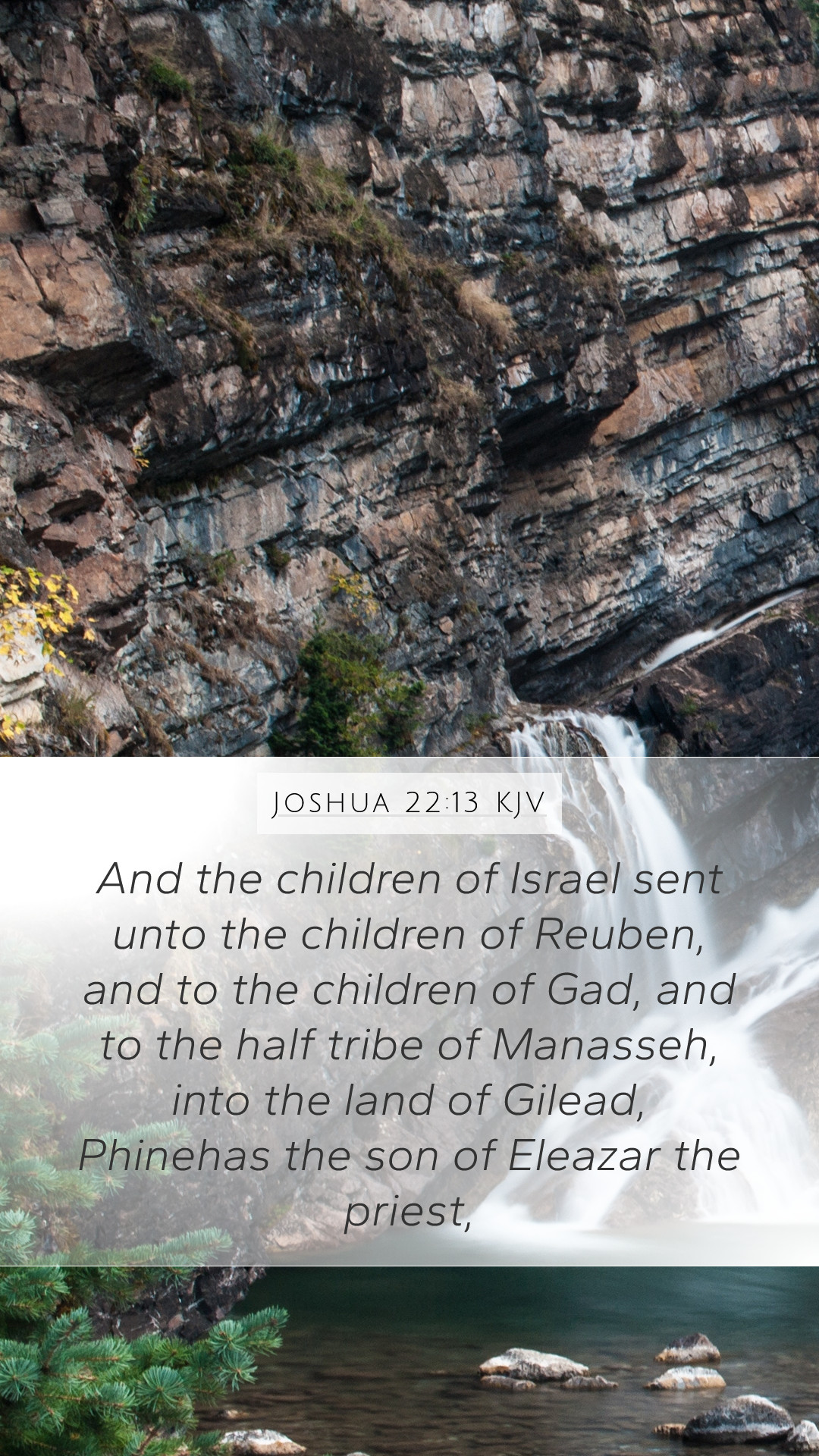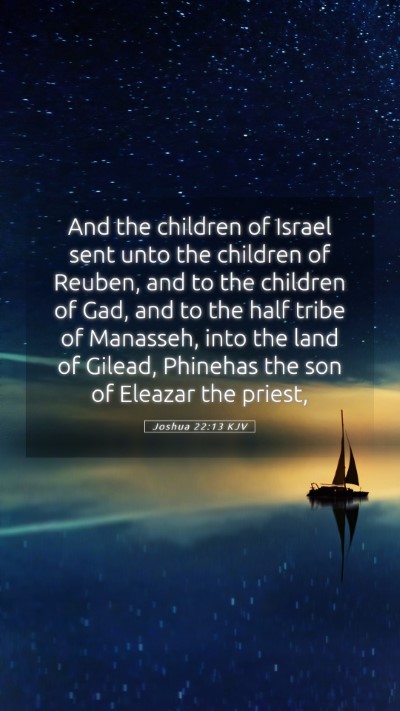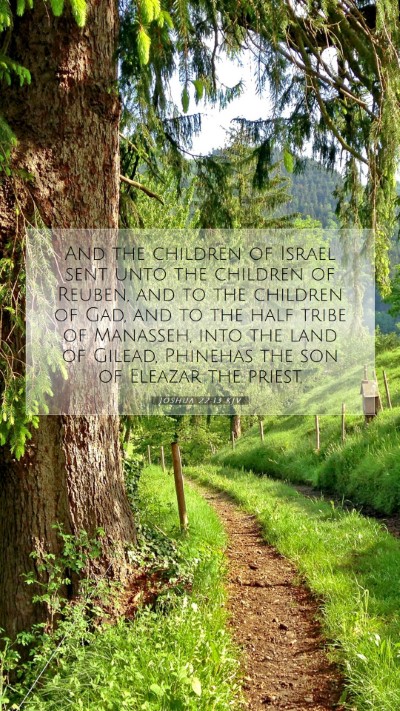Bible Verse Meanings
This verse marks a significant moment in the narrative of the Israelites as they transition from a nomadic lifestyle to settling in the Promised Land. Joshua 22:13 highlights interpersonal relationships and accountability that were crucial for maintaining unity among the tribes.
Bible Verse Interpretations
Phinehas, the son of Eleazar, represents Levitical authority and the importance of priestly mediation. This action of sending a priest reflects the necessity of spiritual oversight in community matters, pointing to the idea that leadership must be aligned with God’s will.
Scripture Analysis of Joshua 22:13
- Leadership and Accountability: The gathering of representatives indicates the need for leadership to address issues that might disrupt fellowship and unity.
- Community Cohesion: The mention of the tribes and their leaders illustrates the importance of maintaining a unified community in fulfilling God’s covenant.
- Spiritual Guidance: The inclusion of a priest emphasizes that spiritual concerns are paramount when dealing with inter-tribal relations.
Biblical Exegesis
The sending of Phinehas signifies a proactive approach to resolve potential conflicts. This highlights the principle of conflict resolution in adherence to God's commandments, which calls for dialogue and understanding before tensions escalate into breach of peace.
Bible Study Insights
For those engaging in Bible study groups or seeking Bible study resources, understanding the context of Joshua 22:13 provides a framework for analyzing the spiritual dynamics in our communities today. It encourages believers to adopt a disposition of peace and to seek divine counsel in matters of conflict.
Commentary Insights from Public Domain Commentaries
Matthew Henry Commentary
Matthew Henry explains that the chosen individuals were not merely representatives of the tribes but spiritual leaders tasked with maintaining order. Their role was crucial as they mediated between the tribes and ensured adherence to God’s laws, which were integral to their identity as a people.
Albert Barnes Commentary
Albert Barnes highlights that Phinehas, as a descendant of the high priest, emphasizes the priestly role in guiding the community. This verse serves as a reminder that spiritual authority exists to foster harmony among believers and purposefully ensure right relationships.
Adam Clarke Commentary
Adam Clarke notes that the act of sending Phinehas carries substantial weight as it encapsulates the principle of seeking godly counsel. This action underscores the need for wisdom and discernment in addressing tribal relations and showcases obedience to God’s direction.
Application of Joshua 22:13
In applying the insights from this verse, believers are encouraged to seek reconciliation in conflicts and to maintain a communal spirit respectful of God’s commands. Engaging in online Bible study can offer deeper understanding of scriptural principles as they relate to daily life.
Conclusion
The insights gleaned from Joshua 22:13 are foundational for anyone pursuing in-depth Bible verse analysis. As we explore the stories of scripture, understanding such passages not only enriches our faith but also equips us to live cohesively within our faith communities.


